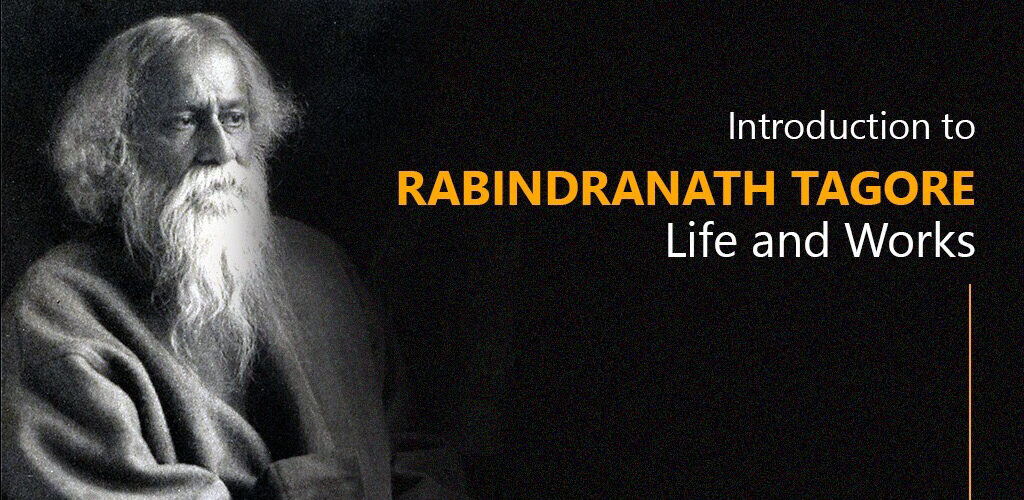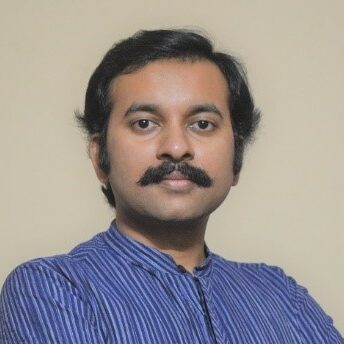
Introduction to Rabindranath Tagore : Life and Works
What are the metaphysics and ethics that undergird the creative impulses of Rabindranath Tagore, Asia’s first Nobel laureate and composer of the national anthem of India?
This INDICA course will offer you a chance to immerse yourself in the life and works of the “Poet Laureate of India,” helping you discover the deeper aesthetic, philosophical, and spiritual roots of the Sūkti-s or noble utterances of a Modern Indian Rishi.
Faculty
20 March 2023 - 29 May 2023
7:00 PM -8:30 PM IST
Every Monday (Except 24th April 2023)
Introduction
This Indica Course will offer an immersion in Tagore’s creative and critical corpus to help the learner understand the keynote of Tagore’s monumental literary, artistic, and altruistic oeuvre – which is the unique Hindu emphasis on aspiring for the higher modes of existence, the life of the spirit, without denying the life of flesh and blood for a moment, while treating the latter as an important site of the unfolding of – and a veritable proof of – the former.
Lectures, presentations, guided critical readings of texts, and carefully selected course material, will help the learner acquire essential reading and interpretive skills to understand the deeper aesthetic, philosophical, and spiritual roots of Tagore’s literary and extra-literary oeuvre.
Course Objectives
- To derive emic insights into the historical and cultural conditions that made the ‘event’ of Rabindranath Tagore possible and helped it thrive in more ways than one through guided reading, listening discussions, and reflection on Tagore’s oeuvre.
- To garner enough biographical information to aid our reading, understanding, and interpretation of Tagore’s literary and extra-literary corpus.
- To come to a conceptual and intuitive understanding of the aesthetic, philosophical, and religious-spiritual roots of Tagore’s works through an appreciation of the linguistic, musical, and artistic media deployed by the Poet.
- To appreciate and critically scrutinize Tagore’s literary and extra-literary corpus vis-à-vis the religious-spiritually inflected literary and artistic tradition of Bengal in particular and India in general.
Course Outcomes
- Situate Tagore’s life and works within a civilizational continuum
- Intuit the religious and spiritual impulses working through Tagorean expressions, sounds, and imageries ubiquitously found in his poetry, music, prose, and paintings
- Understand the deeper motivations behind Tagore’s creative social entrepreneurship, his political activism, as well as his educational and institution-building endeavors
- Appreciate the literary-aesthetic-artistic and religio-spiritual traditions of India with enhanced clarity and deepened sensibility
- Contextualize some of the seemingly disparate pieces of Indian socio-cultural history within an emic metanarrative of the Indic civilization
Course Syllabus
This course consists of four closely interlinked modules. A brief indicative breakdown of each of these four modules is as follows:
Module I: The Life and Times of Rabindranath Tagore
- Bengal and India in the 18th and 19th centuries
- The Tagores of Jorasanko, Calcutta
- The Brahmo Samaj
- ‘Childhood, Boyhood, Youth’
- Biharilal, Bankim, Jyoti Dada, and Rabi
- From Hindu Mela to the Bengal Partition 1905
- The Brahmacharya Ashrama at Santiniketan
- Nobel Prize and Around the World in One Lifetime
- Visva Bharati
- India’s Struggle for Freedom and Rabindranath
- The Final Years
Module II: Understanding Tagore through His Poetry, Music, and Drama
- Sanskrit poetry, Indian poetics, and Tagore’s poetry
- Bengali literary history and Tagore
- Tradition and beyond
- “Tumi Bondhu, Tumi Nath”: Gitanjali and the Song Offerings
- From Balmikipratibha to Tasher Desh and Raktakarabi
- Selected translations of Tagore’s poetry and song lyrics
- Tagore and Vedic hymns
- Tagore and the Vaiṣṇava Padāvalī
Module III: Understanding Tagore through His Novels, Short Stories, Letters, Memoirs, and His Critical Corpus
- Indian history, Indian society, and the ‘Indian Mind’ as interpreted by Tagore
- Guptadhan or the Hidden Treasure
- Gora
- Ghare Baire
- Chhelebela, Atma-Parichay and Jibansmriti
- Selected essays from Bharatbarsha
- Selections from Swadeshi Samaj and Atmashakti
Module IV: Understanding Hinduism through Tagore and Vice Versa
- Tagore’s writings on Dharma/Dhamma
- The Sikh Gurus in Tagore’s writings
- Sriniketan: Rural Reconstruction and Tagore
- Santiniketan: the book and the Ashram
- Visva-Bharati: the book, the philosophy, the university, and a poet’s life of toil
Reading List
The course instructor selected translations of Tagore’s poetry, songs, and essays.
- Tagore, Rabindranath. Gitanjali (Song Offerings). 1917.
- Tagore, Rabindranath. Swadeshi Samaj. Translated by Anasuya Guha, Dey’s Publishing, 2006.
- Tagore, Rabindranath, and Sisir Kumar Das (ed.). The English Writings of Rabindranath Tagore: Essays. Sahitya Akademi, 2007.
- The English Writings of Rabindranath Tagore: Plays, Stories, Essays. Sahitya Akademi, 1994.
- The English Writings of Rabindranath Tagore: Poems. Sahitya Akademi, 2004.
- The English Writings of Rabindranath Tagore: A Miscellany. Sahitya Akademi, 1994.
Watch this video for a detailed course overview

